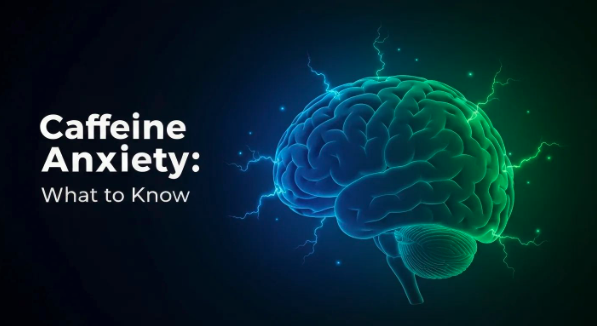The Mental Health Benefits of Minimalism
Discovering Serenity Through Simplicity

Exploring the Intersection of Minimalism and Mental Health
In today's fast-paced world, filled with material accumulation and constant digital distractions, many are searching for a life filled with deeper purpose and more fulfillment. Minimalism, a lifestyle choice characterized by intentional living and simplicity, has emerged as a beacon of hope for those seeking to enhance their mental health and well-being. By emphasizing the value of experiences over possessions, minimalism can cultivate happiness and tranquility. This exploration looks into how decluttering our physical environment can lead to clearer mindsets and stress-free lifestyles, backed by substantial research findings and personal stories.
Reducing Stress and Enhancing Focus Through Minimalism

Impact of clutter on stress
Clutter can significantly elevate stress levels, with research indicating a strong correlation between disorganized environments and increased cortisol production, the hormone associated with stress. In homes filled with excess items, individuals frequently report feelings of anxiety and overwhelm. For instance, studies show that 70% of participants feel overwhelmed by clutter, while 60% notice heightened stress in chaotic spaces. Reducing physical clutter not only alleviates these feelings but also fosters a sense of calm and tranquility.
Focus improvement through minimalism
Minimalism is a powerful approach to enhancing focus. A decluttered environment eliminates distractions, which allows you to concentrate better on tasks at hand. Participants in studies reported a 70% increase in their ability to focus on individual tasks and a 75% rise in productivity levels after embracing minimalism. Simplifying one's surroundings facilitates a clearer headspace, enabling better decision-making and creativity.
Benefits of reduced possessions
The act of minimizing possessions has profound benefits for mental well-being. Individuals often find liberation in owning fewer things, experiencing less anxiety related to maintenance and organization. This lifestyle shift translates into enhanced emotional health, as minimalists typically report greater life satisfaction and an increased capacity for meaningful relationships. By prioritizing experiences over material goods, minimalists cultivate a deeper sense of purpose and joy.
| Benefits of Minimalism | Description | Impact on Well-Being |
|---|---|---|
| Reduces stress | Decluttering lowers cortisol levels linked to clutter | Enhancements in mood and emotional stability |
| Improves focus | Less distraction allows for higher productivity and better decision-making | Increased achievements and satisfaction |
| Enhances emotional health | Shifting focus from possessions to experiences nurtures relationships | Greater happiness and fulfillment |
Embracing minimalism is a step towards achieving mental clarity, reducing anxiety, and fostering a supportive environment for self-growth.
Minimalist Lifestyle: A Pathway to Mental Tranquility

What are the benefits of adopting a minimalist lifestyle for mental health?
Adopting a minimalist lifestyle can significantly benefit mental health by reducing stress and anxiety. A clutter-free environment is essential for promoting tranquility and lowering cortisol levels, the primary stress hormone. Studies show that individuals in tidy spaces report better moods and reduced feelings of anxiety compared to those surrounded by clutter.
Another advantage is enhanced focus and productivity. Minimalism minimizes distractions from physical clutter, allowing individuals to concentrate on what truly matters. By reducing the number of decisions to be made in a cluttered space, such as selecting outfits, daily routines become more manageable and less stressful.
Additionally, financial security is a crucial benefit of minimalism. Embracing this lifestyle encourages mindful shopping habits, helping individuals distinguish between their needs and wants. This shift fosters financial stability and lessens financial anxiety, contributing to overall peace of mind.
Embracing minimalism also nurtures deeper social connections. By focusing on experiences rather than material possessions, individuals can develop meaningful relationships that enhance their overall sense of well-being.
Finally, minimalism promotes a greater appreciation for life’s simple pleasures, resulting in increased happiness and life satisfaction. By prioritizing meaningful experiences, those who adopt minimalism often find themselves feeling more fulfilled and content with their lives.
| Benefits of Minimalism | Mental Health Impact |
|---|---|
| Reduces stress | Lowers cortisol levels, leading to less anxiety and better moods |
| Enhances focus | Increases productivity and efficiency |
| Encourages financial stability | Enables mindful spending, reducing anxiety |
| Fosters deeper connections | Shifts focus to relationships, enhancing well-being |
| Increases happiness | Promotes appreciation for simple pleasures and meaningful experiences |
By embracing a minimalist lifestyle, individuals can enjoy a clearer mind and a more peaceful existence.
The Science Behind Minimalism's Mental Health Benefits

What are some scientific benefits of minimalism?
Minimalism showcases a range of scientific benefits, particularly concerning mental health and overall well-being. Studies indicate that adopting a minimalist lifestyle leads to significant health benefits, mainly due to stress reduction and improved emotional regulation. Research highlights that minimalism allows individuals to prioritize essential aspects of life, such as a balanced diet, regular exercise, and adequate sleep—factors vital for reducing stress and enhancing happiness.
Health Outcomes
The mental health outcomes associated with minimalism are noteworthy. Participants in studies have reported lower cortisol levels, primarily linked to decreased clutter, which directly correlates to reduced anxiety symptoms and lower stress levels. Healthier home environments, free of clutter, have been associated with better decision-making and overall satisfaction in daily activities. Additionally, minimalism promotes stronger social connections by encouraging individuals to focus their time and energy on nurturing relationships rather than accumulating material possessions.
Financial and Cognitive Benefits
On a financial level, minimalism drives independence by curtailing unnecessary spending and promoting thoughtful consumption. This deliberate approach leads to significant savings, as many Americans recognize the abundance of unused items they can sell. Cognitive benefits are also substantial; minimalism enhances focus and productivity by minimizing distractions caused by clutter. Researchers found that reduced clutter leads to better decision-making and improved mental clarity, allowing individuals to concentrate on what truly matters in their lives.
| Aspect | Description | Impact on Well-being |
|---|---|---|
| Health Benefits | Reduction in cortisol levels, improved sleep, better diet | Lower anxiety, enhanced mood |
| Financial Health | Decreased unnecessary spending, increased savings | Greater financial independence |
| Cognitive Function | Improved focus and reduced distractions | Enhanced productivity and creativity |
| Social Connections | Greater emphasis on relationships, rather than possessions | Enhanced emotional fulfillment |
Neuroscience and Minimalism: The Cognitive Connection

How does minimalism affect the brain?
Minimalism can have a profound impact on the brain by creating an environment that promotes mental clarity and emotional well-being. Research indicates that clutter can overwhelm the brain, making it difficult to focus and leading to increased stress. A cluttered space has been linked to heightened cortisol levels, which can exacerbate anxiety symptoms. By adopting a minimalist lifestyle, individuals often experience reduced anxiety levels, as a simplified environment fosters calmness and enhances mindfulness.
Furthermore, minimalism can enhance our ability to engage in deep work. With fewer distractions, we can concentrate better on our tasks and creative pursuits. This improved focus is crucial in an increasingly fast-paced and distracting world.
Notable Effects on Anxiety Reduction
Numerous studies have shown that a decluttered space can reduce the mental clutter that typically overwhelms our daily thoughts. This reduction in cognitive load allows individuals to make quicker and more effective decisions. The practice of minimalism not only alleviates feelings of overwhelm but also leads to emotional healing, as people find peace in organized surroundings.
Overall, the practice of minimalism encourages a more organized mindset, which supports both productivity and mental health, fostering a holistic improvement in cognitive function and emotional well-being.
The Psychological Framework of Minimalism
What is the psychology behind minimalism?
The psychology behind minimalism revolves around the reduction of mental and physical clutter, which can lead to enhanced clarity and emotional well-being. By simplifying one’s environment and commitments, minimalism helps decrease stress and anxiety while promoting a sense of control over one’s life.
Research has shown that clutter can produce more cortisol, the primary stress hormone, leading to increased feelings of anxiety and overwhelm. A tidy environment, on the other hand, is associated with lower cortisol levels, translating to improved moods and reduced cognitive distractions. This environment encourages better focus and productivity, as individuals can concentrate on tasks without the overwhelm of numerous distractions.
Moreover, individuals embracing minimalism often report feelings of joy and tranquility, linked to prioritizing experiences over material possessions. This transition allows people to reflect on their lives and discover what truly adds value, enhancing self-awareness and overall fulfillment. Adopting a minimalist lifestyle can thus foster emotional resilience, increasing one's autonomy and enhancing mental health outcomes.
| Aspect | Practices | Benefits |
|---|---|---|
| Physical Clutter | Decluttering homes | Reduced stress and anxiety |
| Mindfulness | Simplifying commitments | Increased focus and emotional clarity |
| Emotional Reflection | Evaluating value of possessions | Enhanced self-awareness and fulfillment |
By focusing on what truly matters, minimalism supports better emotional health and a clearer, more peaceful mindset.
Clearing the Clutter: Path to Mental Clarity
How does decluttering contribute to mental clarity and reduced stress?
Decluttering significantly enhances mental clarity and reduces stress levels. The presence of clutter often leads to overwhelming visual distractions that can heighten anxiety. Research indicates that a tidy, minimalist environment fosters a calming atmosphere, promoting clear thinking and better decision-making.
With fewer possessions occupying our space, individuals can focus on experiences that truly matter instead of being bogged down by material goods. This focus shift cultivates inner peace and allows mental energy to be redirected toward growth and fulfillment. Moreover, a decluttered home simplifies routine tasks, like cleaning and organizing, further contributing to reduced feelings of chaos.
Emotional Freedom from Material Possessions
Practicing minimalism opens the door to emotional freedom. Many individuals report a sense of liberation when they let go of unnecessary items. This process not only reduces the burden of consumerism but also encourages a mindset that values experiences over possessions.
Furthermore, as individuals clear their spaces, they often experience enhanced clarity in their emotions. This newfound freedom leads to improved self-awareness while nurturing relationships that bring joy and satisfaction, rather than focusing on accumulating things.
In summary, embracing a minimalist lifestyle not only clears physical space but also makes way for emotional well-being, self-sufficiency, and psychological resilience.
Happiness and Minimalism: Intricately Linked

What studies exist on minimalism and happiness?
Recent studies suggest a positive relationship between minimalism and happiness, highlighting that minimalists often experience higher levels of psychological well-being.
Research led by Joshua Hook indicates that over 80% of quantitative studies found a connection between minimalism and well-being, while qualitative studies reported an even higher association. Notably, a study from 2005 showed that individuals practicing voluntary simplicity experienced greater positive emotions compared to control groups. Furthermore, minimalism promotes essential psychological needs, which leads to improved life satisfaction, especially among low-income and older individuals.
How does minimalism affect emotional outcomes?
Minimalism fosters emotional healing by providing a calming environment. This allows individuals to reflect deeply on their thoughts and feelings without the distractions of excess clutter. Many minimalists report experiencing less stress and anxiety, alongside increased joy and tranquility, showcasing the potential for improved emotional well-being through a minimalist lifestyle.
Is there a correlation between minimalism and lifestyle satisfaction?
Research indicates that adopting a minimalist lifestyle correlates with greater life satisfaction. As individuals prioritize experiences over material possessions, they often express a sense of freedom from consumer pressures. This shift enhances feelings of autonomy and confidence, contributing positively to overall mental health. Ultimately, the evidence presents minimalism not just as a decluttering process but as a pathway to a more fulfilling and satisfying life.
Navigating Minimalism: Weighing the Pros and Cons
What are the pros and cons of minimalism?
Minimalism is often celebrated for its many advantages, including:
- Reduced Stress: A decluttered environment lowers cortisol levels, helping to alleviate anxiety and promoting a sense of calm.
- Improved Mental Clarity: Fewer distractions in living spaces enhance focus and productivity, allowing individuals to concentrate better on their tasks and goals.
- Financial Savings: By reducing unnecessary purchases, minimalism can lead to significant financial savings, as many people realize they can sell unused items.
- Greater Life Satisfaction: The philosophy encourages valuing experiences over possessions, fostering deeper relationships and personal happiness.
While these benefits are appealing, minimalism also poses potential drawbacks, such as:
- Risk of Discarding Essentials: In the pursuit of a minimalist lifestyle, individuals might unintentionally part with items they later find necessary.
- Social Challenges: If loved ones do not share the same minimalist values, it can lead to misunderstandings or conflicts, affecting relationships.
- Feelings of Isolation: Some may feel disconnected from friends and family who may not understand or appreciate their minimalist approach, leading to loneliness.
In summary, while minimalism can significantly enhance one's quality of life through less clutter and a greater focus on meaningful experiences, it does require careful consideration of personal circumstances and social dynamics.
Embrace Simplicity for a Healthier Mind
In conclusion, minimalism offers a compelling pathway to improve mental well-being. While it fosters tranquility, focus, and emotional resilience, it also encourages mindfulness and a deeper connection with life experiences over material possessions. By embracing minimalism, individuals can reap the myriad psychological and emotional benefits, from reduced anxiety and stress to heightened happiness and satisfaction. However, it is essential to approach this lifestyle mindfully, adapting it in ways that align with personal values and circumstances to truly make a positive impact on one's mental health. In a world often consumed by excess, minimalism teaches us the profound lesson of finding joy and meaning in simplicity.
References
- 15 Science-Backed Benefits of Minimalism
- Minimalism and its Positive Effects on your Mental Health
- Mental Health and Minimalism: Is It Harmful or Helpful? - Olivia Schnur
- What Can Minimalism Do for Mental Health? - Psychology Today
- A psychological perspective on the benefits of minimalist living
- Goodbye materialism: exploring antecedents of minimalism and its ...
- Declutter The Mind: The Mental Health Benefits of Minimalism
- The Mental Health Benefits of Minimalism: Why less really is more
- Legit Benefits of Minimalism and Living With Less | Mia Danielle
- Letting go for a happier, healthier you: 5 health benefits of minimalism
More Resources
A team ready to start your journey.
Get in touch — today.
We are a safe space – a haven for exceptional individuals to receive discreet, personalized, in-person treatment and care.
.avif)

.webp)








